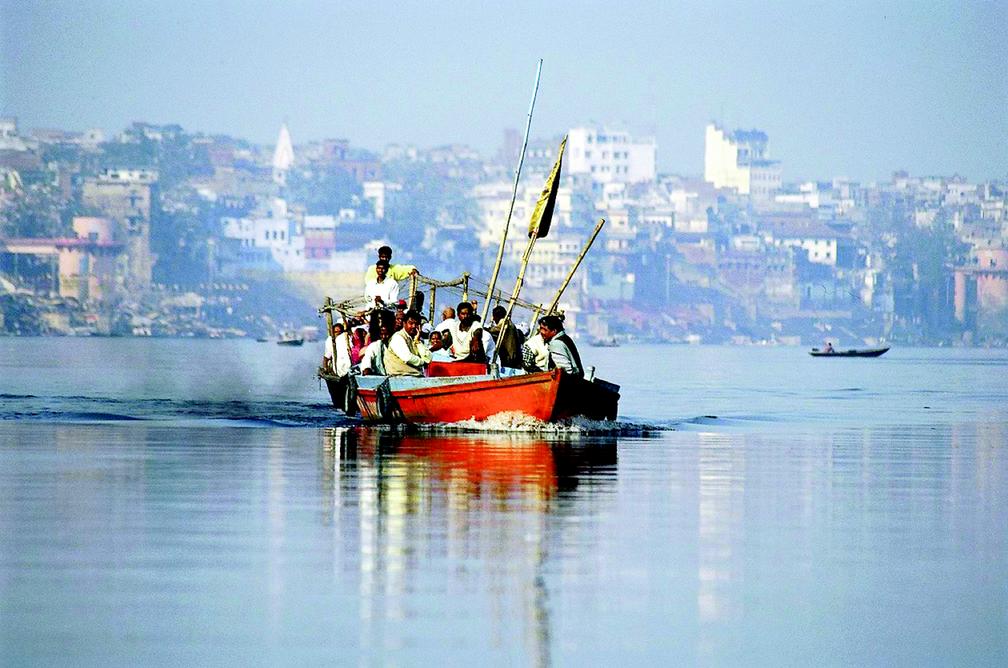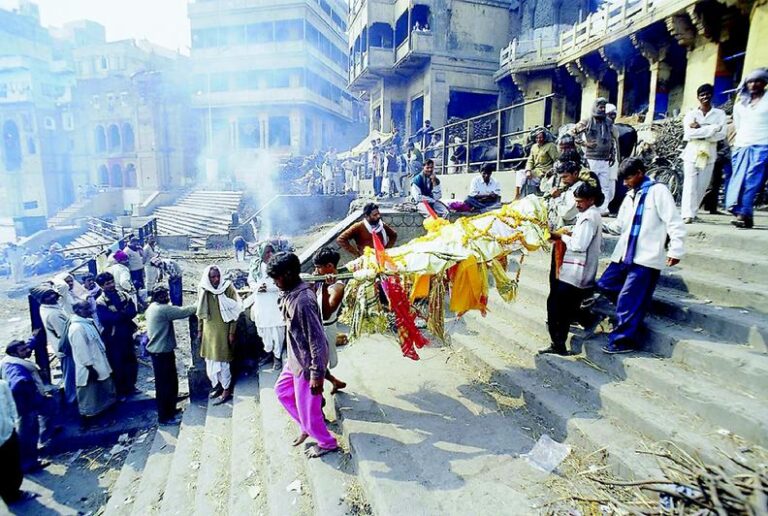In Ganges: River to Heaven, filmmaker Gayle Ferraro travels to the Indian holy city of Kashi. For a number of reasons–including its location along the banks of the Ganges River–thousands of people every year travel to Kashi to die. Ferraro's film takes us inside one of the city's many hospices where families wait patiently for their loved ones to pass on.
Hindus believe, of course, in reincarnation. They also believe that, once a person is fully cleansed of evil, they will break the cycle of death and rebirth and ascend into Heaven. One of the surest ways to cleanse yourself of evil is to bathe in the River Ganges, drink from the River Ganges, hang out near the River Ganges, basically interact with the sacred river as much as humanly possible. (Three times a day seems to be a good number.) And, according to tradition, Kashi is the very spot at which Ganga, the Hindu mother-goddess of the Ganges, is at her strongest.
River to Heaven follows four families who have brought their dying relatives–often from hundreds of miles away–to expire on the banks of the Ganges. Ferraro's camera gently records the final ministrations the families bestow on their loved ones. In doing so, the film kicks off an interesting debate about the concept of dying with dignity. Clearly, all of the people who show up at the hospice are far beyond the help of any hospital. (One gets the impression that old people in India are freakin' old.) The spiritual acceptance their families exude seems to bespeak a healthy attitude toward the inevitable circle of life. Perhaps passing away surrounded by peace, love and religious devotion is preferable to being surrounded by drugs, feeding tubes and nurses. Just a thought.
Short as it is, River of Life manages to explore a number of issues. Aside from the spiritual, there is the environmental. Despite the Hindu belief that the Ganges is incapable of becoming impure, the river is actually shockingly polluted. Not only do millions of people bathe in it every day, but raw sewage flows into it nonstop. On top of all that, there's the frighteningly shortsighted religious stricture that people who die a natural death are burned on a funeral pyre, but people who die of communicable diseases like leprosy and small pox are dumped directly into the river. Perhaps the most interesting interview in the film comes from an engineer who can separate his mind (which wrestles with ways to save the toxic, fecal coliform-filled river) and his soul (which still requires him to bathe in it on a regular basis).
The film also explores Kashi's intriguing “business” of death. Thousands are employed in an industry that provides litters for the funeral processions, elaborate jewel-toned burial cloths for the deceased, wood for the funeral pyres. This is among the film's most interesting explorations, and provides an eye-opening glimpse into this foreign world where the struggles of life and death are (quite literally) played out every day on the ancient ghats (stone steps that line the river).
The film's only major drawback is that it never digs quite deep enough into its subject matter. The film is undeniably beautiful, shot with an eye for everyday detail–something which India is overflowing with. But it's difficult, in the end, to tell quite what we're meant to think about this issue as a whole. Ferraro certainly captures the spirituality of India and gives us an interesting conversation-starter concerning end-of-life issues; but the film lacks the perspective of a narrator and occasionally gets distracted from its central issue. The environmental concerns, which seem like a pretty big deal for India, could have been expanded upon. A few other topics–India's still-rigid caste system, for example–are touched on only briefly, then tossed aside.
Still, as a simple, gorgeously shot primer on Hindu spirituality, Ganges: River of Heaven works, delivering the worthwhile message that maybe death can lead to a greater life.




